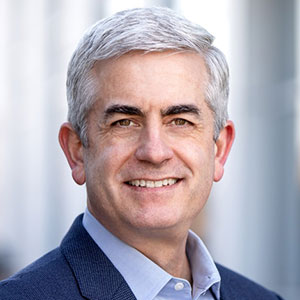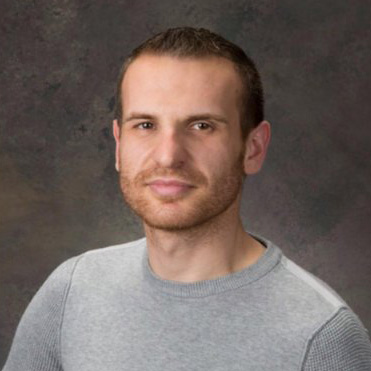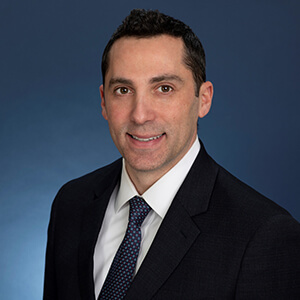Featuring Brett Pletcher, Executive Vice President, Corporate Affairs and General Counsel at Gilead Sciences
Korab Zuka, Vice President, Public Affairs at Gilead Sciences
Joydeep Ganguly, Senior Vice President, Corporate Operations at Gilead Sciences
Published April 28, 2021 | 4 min read
Key Points
- Gilead’s employees are the most engaged stakeholders on ESG issues.
- A materiality assessment has given Gilead five key ESG elements: (1) drug access, pricing, and affordability; (2) R&D; (3) inclusion & diversity; (4) attracting talent to drive innovation; and (5) climate change.
- Drug pricing is most important to Gilead, which has programs to aid access in the developed and developing worlds.
- Gilead’s board believes that its ESG strategy contributes to its overall success.
Gilead Sciences has long focused on sustainability but recognized a more robust framework was needed. Based on a materiality assessment, Gilead’s ESG strategy today focuses first on drug access and pricing, while also addressing D&I and climate change. RBC Capital Markets’ Brian Abrahams, Co-Head of Biotechnology Equity Research, caught up with Gilead’s team of ESG leads at RBC’s Global ESG Conference to learn more about its strong commitment to ESG and what’s material in ESG for biopharma companies.
Stakeholders drive ESG goals
Companies in every industry are increasingly recognizing that stakeholders have varied targets and issues when it comes to ESG. At Gilead, the investor community is highly important, and most of them have an ESG analyst that comes to meetings and wants an outline of current and future goals for the firm. But the employees are the stakeholders that are most committed, they want to work at a company that’s doing the right thing.
“The stakeholders that engage with us most frequently on these kinds of goals and ESG issues are primarily employees,” says Brett Pletcher, Executive Vice President of Corporate Affairs and General Counsel at Gilead.
“We’ve got 17 million people out there in the world who are taking a Gilead drug every day in the developing world for HIV and people are very, very proud of that.”
Brett Pletcher, Executive Vice President of Corporate Affairs and General Counsel, Gilead Sciences, Inc.
Materiality for biopharmas
For a major biopharma firm, ESG looks a little different than it does in other industries. After building upon initiatives on goals, data collection and disclosure over five years, Gilead decided last year to run a full materiality assessment, which came up with five key elements for its strategy. These were, in order of importance: (1) drug access, pricing, and affordability; (2) R&D (3); inclusion & diversity; (4) attracting talent to drive innovation; and (5) climate change.
“Drug pricing is something that we could spend a lot of time talking about, and access has a lot of different pieces to it from the pricing set by the drug company to the copay requirements set by the insurance companies,” says Brett Pletcher.
This isn’t just an issue in the developing world, but in the developed world also, where Gilead has a number of programs to help patients access its medicines.
“We never want a patient to be unable to access a medication because of cost. And so, for any patient who is uninsured or has certain levels of income, we have a free drug program where that patient can give us a call and we can provide that drug free of charge,” explains Brett.
“We never want a patient to be unable to access a medication because of cost. And so, for any patient who is uninsured or has certain levels of income, we have a free drug program where that patient can give us a call and we can provide that drug free of charge.”
Brett Pletcher, Executive Vice President of Corporate Affairs and General Counsel, Gilead Sciences, Inc.
“We also have copay assistance programs where if patients can’t afford to copay set by their insurance company we can assist them to some extent. There are some programs that we’re not allowed to provide any assistance with, so there are also charitable foundations out there to which we’ll give money.”
How climate change affects strategy
While climate doesn’t figure as high up in priorities as in other industries, it’s still an important piece of ESG strategy at Gilead. The company has a target to reduce operational greenhouse gas emissions by 25% from 2016 levels by 2025, and it’s well on its way to achieving that already. Gilead has managed to make reductions of 44% so far, despite 14% operational growth, partially aided by sustainable lab practices.
“[We are] trying to drive this notion of intelligent laboratories, where levels of automation can significantly impact consistency in the way you use water and energy, for example, during cleaning regimes etc. So using technology and automation to drive some degree of consistency in energy and resource usage is a huge part of our focus,” says Joydeep Ganguly, SVP of Corporate Operations.
ESG makes sense
Companies and investors are more aware today that ESG makes a tangible difference to their bottom line. ESG investments outperformed over 2020 and companies that embrace sustainable strategies have also reported material gains. For Gilead, it’s about being thoughtful in its strategy.
“Our board is acutely aware of the contribution that ESG makes to Gilead’s overall success. And actually, it’s a point I can’t make strongly enough, we see this as a certain degree of causality that companies that do invest in ESG are actually companies that do well, and from our perspective we do see a very strong link between our ESG ethos and our results,” says Joydeep Ganguly.
“Our board is acutely aware of the contribution that ESG makes to Gilead’s overall success. ”
Joydeep Ganguly, SVP of Corporate Operations, Gilead Sciences, Inc.
“That said, we are very thoughtful about the investments we make. We believe they need to be directly correlated to things like climate change and in line with our strategy. But we don’t see this as being mutually exclusive… It’s a combination of being thoughtful, being very strategic, and investing heavily in planning.”
Required Disclosures and Disclaimers
Featured Guests:

Brett Pletcher
Executive Vice President, Corporate Affairs and General Counsel at Gilead Sciences

Korab Zuka
Vice President, Public Affairs at Gilead Sciences

Joydeep Ganguly
Senior Vice President, Corporate Operations at Gilead Sciences
